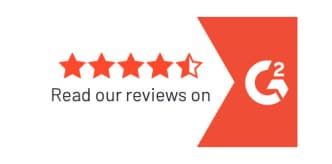401(k) plans are a great perk for a company’s employees and a much needed one. They give tax breaks to the employer and allow that employer, along with their employees, the opportunity to save for retirement on a pre-tax basis. It’s a win-win for all.
Background
Although there are many benefits to offering a 401(k) plan, the Aspen Institute reported in 2019 that almost 60% of American workers don’t have a retirement plan of any kind. The Institute also predicted that that figure was likely to increase as the number of gig workers and freelancers rises.
And while large companies tend to offer a 401(k) plan, not so with small businesses (those with fewer than 100 employees). The smaller the company, the less likely its employees have access to a 401(k). Of the 30+ million small businesses in the U.S., fewer than 20% offer some type of retirement plan.
That might have been true several years ago, but that’s all changing with fintech.
Fintech? Fintech is the technology and innovation that seeks to improve and automate the delivery and use of financial services.
And it’s not new – fintech’s been around for years, used as back-office support for bankers and traders, with other companies barely glancing at it.
Fast forward to the present. Fintech is carving out a place all its own in the retirement industry, making a big splash in the 401(k) small plan market, where many of the 50 million Americans who don’t have access to a company-sponsored retirement plan work. And in the process, it’s making 401(k) plans a lot less expensive than the traditional legacy systems many recordkeepers use.
Impediments to offering a plan
So why have small business owners been reluctant to sponsor a 401(k) plan? Complexity and cost – the greater the complexity the higher the cost – head the list.
Complexity
- Administration – paperwork, regulatory compliance, time, and limited administrative resources
- Operations – how contributions are deposited, assets managed, and dissemination of required plan communications made
- Investments – select the plan investment menu, communicating risk/return to participants, managing fees
- Fiduciary liability concerns
Cost
- Startup – setting up the plan and educating employees about it
- Administrative – accounting, recordkeeping, and compliance (including Form 5500 preparation) plus day-to-day operations and account management
- Investment fees – fees associated with managing plan investments, generally charged as a percentage of fund assets; large plans can negotiate for low fees, but small businesses (those with less than $5 million in assets) don’t have as much leverage
- Individual fees – service fees for special plan features such as loans and hardship withdrawals
Fees are one of the worst problems a plan and its participant have. Administrative and investment fees, often hidden, can easily take a chunk of up to one-third of participants’ retirement accounts over the life their savings.
Fintech TPA/recordkeepers are working to resolve these problems and keep costs down so participants can keep more of their money.
Solutions
Technological innovations are found in many realms of life and mainly are designed to make life easier for us humans. When brought into the 401(k) world, technology is playing an important role there as well.
Some TPAs have adopted fintech wholeheartedly, using its technology – from chatbots to robo-advisors – to make it easier for small businesses to have a 401(k) plan. Robo-advisors have made plan information and investment advice more accessible to plan sponsors and participants.
As a result, fintech TPAs are making 401(k) plans more attractive to small business owners, making it easier for them to have a plan with the efficient, low-cost solutions that are changing the retirement industry.
Fintech disruptions
It’s becoming more important than ever for TPA/recordkeepers and advisors to be tech-savvy. It helps them improve client outcomes while making their jobs easier. The world has become ever more hi-tech, and plan sponsors and participants have come to expect it in their financial dealings. Fintech can help solve participant retirement savings and investing challenges and plan sponsor headaches.
- 401(k) plan sponsors and participants value flexibility in plan design and investment choices. Fintech gives the plan sponsor the capability to design the features and investments that will best serve the needs of the company and its employees.
- Plan administration is complex and time-consuming. With fintech, payroll integration, setup, and onboarding procedures are faster and less complicated, and therefore most cost-efficient.
- Compliance with federal regulations such as ADP/ACP nondiscrimination testing is one of the most difficult tasks an administrator can have. Tracking participant eligibility, deferrals, and compensation is made simpler and more accurate thanks to fintech. Technology also helps the plan sponsor streamline participant disclosures and other required documents so they’re no longer the tedious tasks they once were.
- Tax credits provided by the SECURE Act of up to $5,000 a year for three years to offset startup costs for adopting a new 401(k) plan plus an additional $500 per year for adding an auto enrollment feature. The tax credits can be as much as $5,500 a year, or $16,500 over three years for an employer who takes advantage of both credits, and the incentives for a small business owner to offer a 401(k) plan are ever more enticing.
- Robo-advisors. Robo-advisors are a hot item in the world of fintech artificial intelligence. Robo-advisors use algorithms to make trades based on risk tolerance derived from analyzing the answers to an investor’s questionnaire. They work with, or in place of, a human advisor. They work well for younger clientele who are comfortable with technology, less so for those age 50+ who are leery of them but have 80% of 401(k) assets.
Advisors and fintech
“Advisors need to innovate or die…” warned Jim O’Shaghnessy, president of Sheridan Road Financial in 2017. If this was true in 2017, it’s even more so in 2022.
It’s no secret that the retirement industry has lagged others in adopting advanced technology solutions. That’s changing, however. Approximately 85% of advisors have decided they need to place a greater emphasis on technology to run their business after retirement savings became a hot topic during the COVID-29 pandemic.
Fintech is helping advisors help participants understand their 401(k) plan better, especially the investments. Participants also need help planning for that time when they stop working. Advisors are there to encourage employees to participate in their 401(k) plan, using fintech to design a personalized savings plan for them.
Final thoughts
Technology is here to stay, and fintech companies are making their mark. They’re boosting 401(k) savings in general, and for employees in small companies.
Fintech companies are also taking the lead in innovations that bring about lower fees and higher client and participant outcomes.
Yet it’s still moving at a snail’s pace, feeling its way along a path strewn with pitfalls, all the while disrupting the industry it calls home.
Looking for a fintech company for your 401(k) plan? Look no further.
401GO
401GO is a fintech company that was created to offer improved access to work-sponsored retirement plans by helping small businesses implement 401(k) plans for their employees.
They built a fully integrated and intuitive proprietary system that does the work of 3-4 providers and saves employers money, time, and hassle through efficiency and automation. And in so doing, improve outcomes for workers who are often ignored or underserved by traditional providers.
Interested? Team up with 401GO and discover how fintech solutions are a boon for your business.



